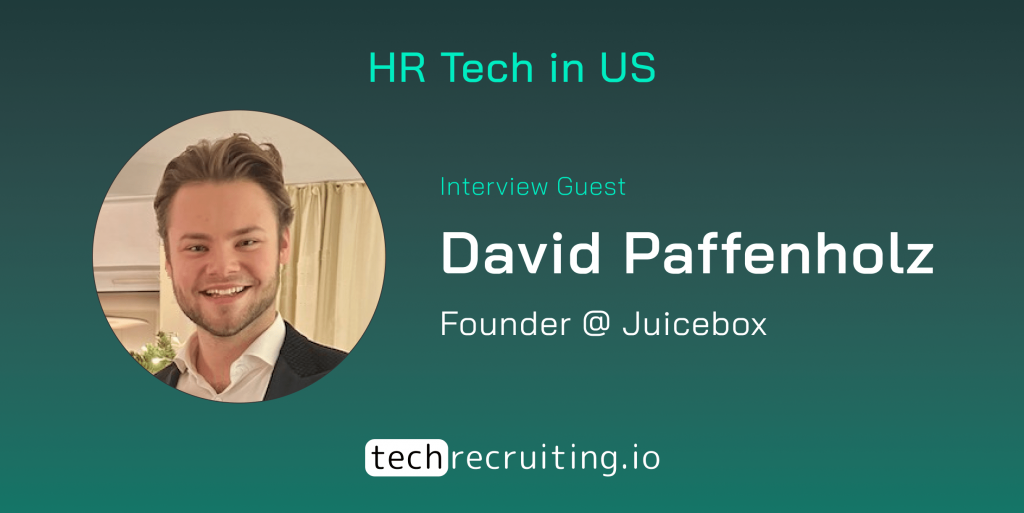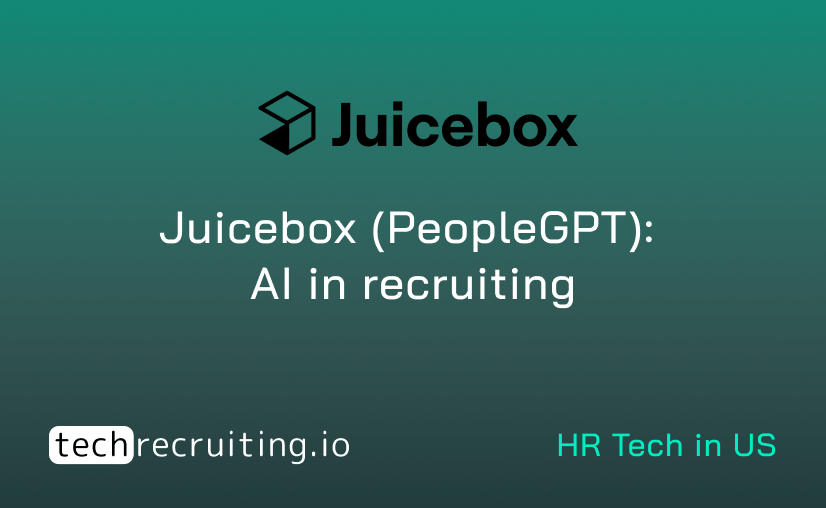In our category “HR Tech in US” we present HR tech companies from the USA and what the European HR world can learn from them.
In this interview, I spoke with David Paffenholz. He is Founder of Juicebox, a company that offers an AI solution for recruiting.
David, you developed PeopleGPT with Juicebox to bring artificial intelligence (AI) into recruiting. – How does your approach work and what makes it special?
Imagine if you had a recruiting assistant who‘s read through hundreds of millions of profiles and built an understanding of each individual‘s experiences, skills, and interests. You can ask the assistant to help you set up searches for best-fit candidates, craft personalized messages for them, and present you with an organized list of results.
That‘s what PeopleGPT brings to market — today — an AI powered people search engine. You enter a description of who you‘re searching for, and PeopleGPT will 1) find best fit profiles across 30+ data sources, 2) write personalized outreach, and 3) export those candidates, including candidate summaries, to your ATS / CRM.
Will AI put recruiters out of work?
No, but it will transform their jobs.
Sourcing will evolve from reviewing thousands of profiles to selecting amongst best-fit candidates that the AI found. Candidate relationships will become even more important, as personalized messaging becomes commonplace. Employer branding will take on increased importance, even involving role-specific branding initiatives.
Overall, more time will be spent in AI-assisted workflows, guiding software to help achieve goals. It will result in more impactful TA departments, with more attention placed on candidate experience, higher conversion rates across all funnel steps, and greater hire success rate.
How do you envision the future of your AI? Do you think beyond the recruiting sector?
We‘re focused on recruiting.
That involves 1) adding more data sources into our platform, many of which have entirely untapped data on candidate skills and experiences, 2) expanding our AI features, including entirely new workflows, and 3) deepening our integrations with the 60+ ATS and CRM platforms we currently support.
You know the German and American markets. What do American tech companies do differently to German ones?
I‘m more familiar with the American than the German market, but some of the key differences we‘ve observed (purely anecdotal):
- Active Sourcing: more commonplace across roles in the US
- Candidate Outreach: outreach still leans towards LinkedIn or Xing in European, though there is increased willingness to try other channels (email, phone, WhatsApp)
- Personalization: generally high personalization and strong engagement in the European market
Why did you set up in the USA?
I first moved to the US to go to college and have stayed here since. In my mind, it‘s undoubtedly the best place to build a tech startup: you have a high concentration of like-minded founders, access to capital, and a large talent pool with previous startup experience. We started building PeopleGPT while going through Y Combinator, a startup accelerator in San Francisco, and it was an easy decision to stay here since.
David, thank you for the interview and your insights!

